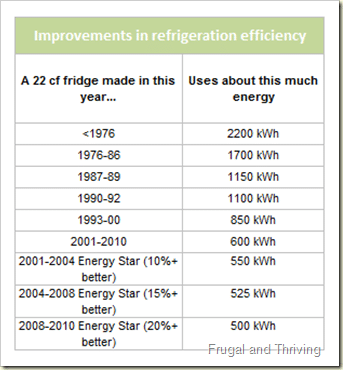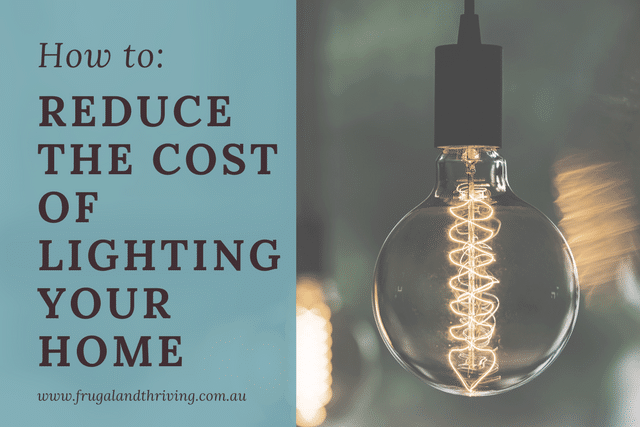Reduce the Cost of Running Your Fridge and Freezer
This website may earn commissions from purchases made through links in this post.
This article is part of a series on saving money on electricity.

Fridges and freezers account for around 7% of the overall energy use in the average Australian home, however, depending on the number, size and age of your fridges and freezers, it can account for up to 15%.
The fridge and freezer are two appliances that are switched on 24 hours a day, 365 days a year. So it pays to invest in the smallest and most energy efficient models practical for your situation.
Saving money on refrigeration can be a little tricky if you’re trying to bulk buy food to save money on the groceries.
Is it cheaper to buy that side of beef or ditch the second freezer?
The answer will depend on the energy cost of running your particular freezer, the savings you gain on your bulk purchases and whether you optimise the running of your freezer (keep it full or turn it off when empty, for instance). Here’s how to calculate whether an extra freezer is worth it.
Below are some tips on saving money on refrigeration and freezing.
Saving money on refrigeration
- Ditch the beer fridge. Or keep it turned off unless you really need it.
- Replace fridges older than 10 years. Here’s a table that shows the improvements in efficiency in refrigeration over the years. The data comes from this website (US).

- If you’re replacing your fridge, buy the smallest one practical for your family size.
- Check that the seals are working properly by placing a piece of paper half in, half out of the door and closing the door. You should not be able to pull the paper out easily. Clean or replace seals as needed.
- Your fridge runs more efficiently if full, but not too full that there is no air circulation – keep it full but don’t over-pack it.
- Set the temperature between 2°C and 4°C. The colder your fridge is below this temperature the more it costs you unnecessarily.
- If you can, put the fridge away from heat sources and the oven.
- Keep at least a 5cm gap around the fridge for air circulation.
- Clean under the fridge and at the back of the fridge regularly. Remove dust build up very gently from the compressor at the back to help it run more efficiently.
- If your fridge has an anti-sweat switch, turn this off.
- Try not to open the fridge door frequently or for too long. An organised fridge will help you find what you need quickly.
- Cool leftovers on the bench. Hot food will make the fridge it work harder to maintain temperature.
- Cover food. Uncovered food releases moisture, making the fridge work harder.
Saving money on freezing food
- Keep the freezer full. A full freezer works more efficiently. Fill empty spaces with recycled bottles filled 3/4 full of water. (A full freezer will also keep food longer in the event of a power outage).
- Set the temperature between –17°C and –10°C.
- If your freezer is not frost-free, defrost regularly. Don’t let the ice get thicker than 5cm.
- If you use a separate freezer, consider a chest freezer as they are more efficient.
- Put a bowl of ice cubes in your freezer when you go away. If they have melted and refrozen in a blob, you know you’ve had an extended power outage and the food has probably spoiled.
- Alternatively, plan to eat what you have in the freezer before an extended holiday and turn it off while you’re away.
And if these tips fail to impress, you could always go without a fridge and freezer.
What?! You might say.
There is a growing trend to live sans-refrigeration. Google ‘living without a fridge’ and you will read some amazing stories of people who live years without refrigeration.
Of course, people have been living without refrigeration for thousands of years prior to last century.
The domestic fridge wasn’t invented until 1914 and it didn’t become a common household appliance until at least the late 1920s.
But to be honest, I’m not ready to give up my own fridge just yet.
So I think I’ll just settle for checking the seals and keeping the freezer well stocked.
Would you ever consider living without refrigeration?







This article would be served as a reminder about that the fridge and freezer are two appliances that are switched on 24 hours a day, 365 days a year. So it pays to invest in the smallest and most energy efficient models practical for your situation. Great ideas in distinguishing features. Thank you for this article